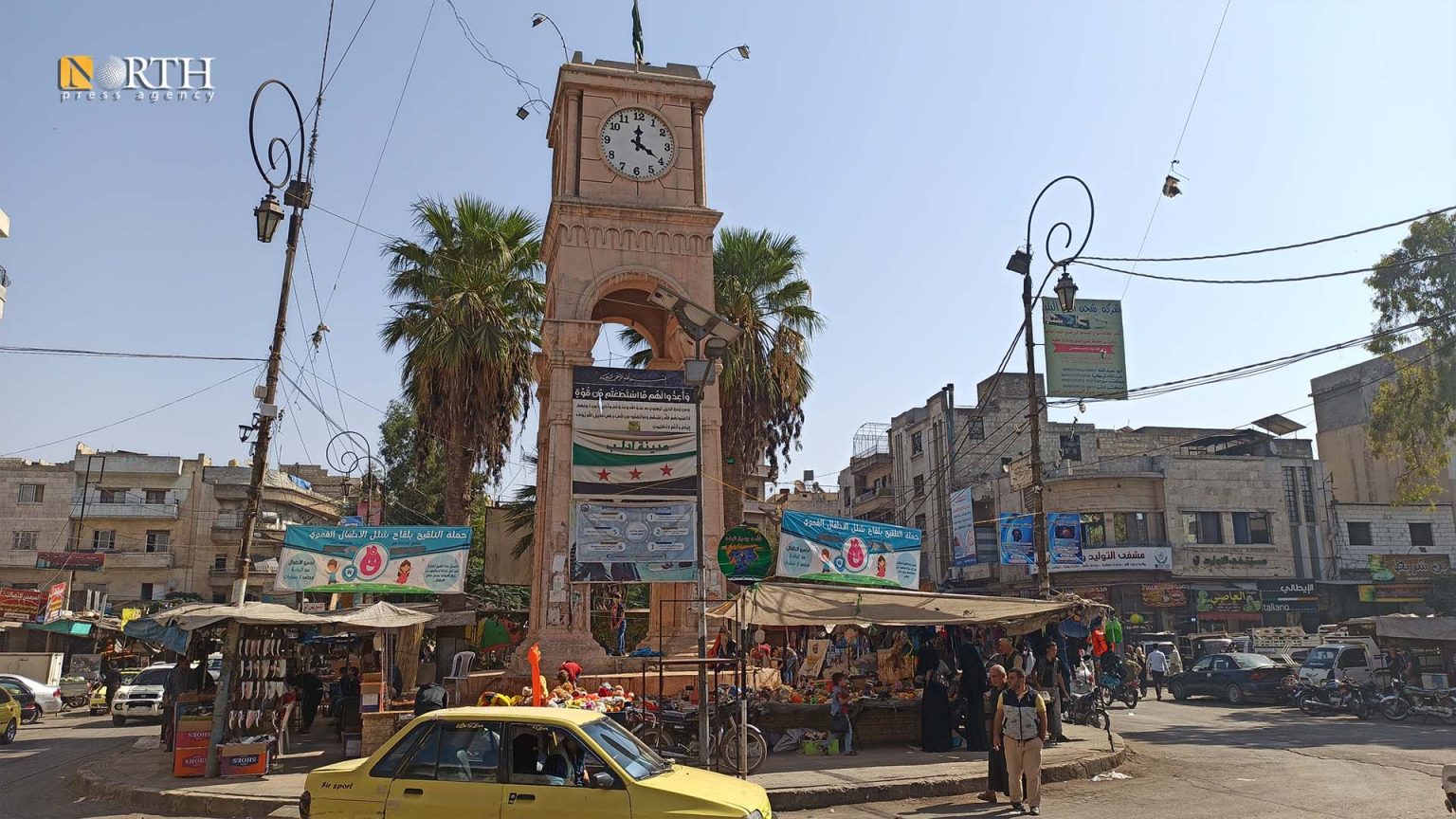IDLIB, Syria (North Press) – Since the beginning of May, areas under the control of the Turkish-backed armed opposition groups, northwest Syria, witness a remarkable increase in the number of coronavirus infections amid fears of the approaching of a new wave before completing the vaccination of the first batch.
Workers in the health sector in northwest Syria fear from the possibility of the increase in the number of the infections despite the arrival of the first batch of the vaccinations from the WHO, which estimated at 53,000 doses.
Dr. Rami Kelzi, Manager of Community Health Programs of the Ministry of Health said, the main reason of the resurgence of high rate of the infections is the increasing cases in the regions of Sere Kaniye (Ras al-Ain) and Tel Abyad which suffer from the absence of services to combat coronavirus pandemic.
Moreover, the other reason is the residents’ failure to adhere by the preventative measures against the virus, Kelzi told North Press.
Hotspot
Kelzi pointed out that the new hotspot is in Sere Kaniye (Ras al-Ain) and Tel Abyad, then Afrin; which are the poorest region of health services regarding combating coronavirus pandemic.
Until May 21, northwest Syria recorded 22.600 infections, of which 2,100 active infections until now, the rest have recovered and there are 671 deaths since the announcement of the first case in northwest Syria on July 9, 2020.
He stated that the region entered the second wave of the pandemic and the number of the infections will continue to rise.
They vaccinated about 12,000 of the medical staff and humanitarian workers and “the campaign will continue until the distribution of 53,000 doses until the middle of next month, according to Kelzi.
Two additional labs, two quarantine hospitals, and an oxygen plant have been prepared, and about 830,000 doses will be distributed until the end of this year, as the doctor noted.
Weak procedures
The number of quarantine centers for moderate and light cases is 23, with 10 additional centers on alert, while the number of quarantine hospitals for severe cases is 9.
The hospitals contain 340 beds, 145 beds for intensive care unit (ICU) and 135 respirators, according to the Interim Government’s statistics.
Dr. Muhammad al-Saleh, coordinator of the Assistance Coordination Unit (ACU) in northern Aleppo, told North Press that since the beginning of May, the regions of northwestern Syria have witnessed an increase in the number of Covid-19 cases, after they were almost stopped or reached minimum levels.
He said, the first infection with the British strain was discovered in Afrin on April 6, explaining that the region lacks the viral profiling capabilities to identify the strains.
While Hussam Qara Muhammad, who is in charge of coronavirus file in the Idlib Health Directorate, attributed the reasons for the increase in cases of coronavirus to “people’s reassurance and the reduction of their fears in terms of catching the virus.”
The director of the Syria Response Coordinators Team, Muhammad Hallaj, considers the high number of the infections as “normal”, amid weak preventative measures and the weakness of the medical sector.
Hallaj indicated that the available solutions are to increase the preventative measures, increase sterilization campaigns and distribute hygiene materials, in addition to increasing quantities of water and personal hygiene allowances, where these procedures must be set in the markets and limit gatherings by the local authorities.

